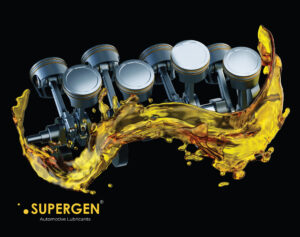Introduction:
The world of automotive maintenance often sparks debates and discussions, and one topic that frequently surfaces is whether it’s acceptable to mix different engine oils. Many car owners find themselves wondering if blending oils is a cost-effective solution or a recipe for disaster. In this comprehensive guide, we’ll delve into the intricacies of mixing engine oils, exploring the science behind it, potential consequences, and the instances where it might be considered acceptable.
Understanding Engine Oils:
Engine oils play a crucial role in the overall health and performance of a vehicle’s engine. They lubricate moving parts, reduce friction, cool the engine, and help keep it clean by preventing the buildup of sludge and deposits. The Society of Automotive Engineers (SAE) has established a numerical code to classify oils based on their viscosity, which indicates the oil’s flow characteristics at different temperatures. Viscosity is a key factor in oil performance, and it’s essential to understand that mixing oils of different viscosities can impact how well they function in an engine.
The Science of Mixing Oils:
When contemplating the idea of mixing engine oils, it’s essential to consider their compatibility. Most modern engine oils are formulated with a variety of additives and base oils that are carefully balanced to meet specific performance standards. Mixing oils with significantly different formulations can alter their chemical composition and compromise their ability to perform optimally.
The viscosity of the oil is a critical factor when it comes to blending. Mixing oils with different viscosities can result in an oil blend that doesn’t meet the engine’s requirements, leading to inadequate lubrication and potential damage.
Instances Where Mixing Might Be Acceptable:
While the general recommendation is to use a single, recommended oil for your vehicle, there are certain situations where mixing oils might be acceptable:
Top-up Scenario:
If you’re adding a small amount of oil to your engine and the only option is a different brand or slightly different viscosity, it’s generally considered acceptable. However, try to stick as closely as possible to your engine manufacturer’s recommendations.
Oil Change Transition:
If you’re transitioning from one oil type to another during an oil change, it’s advisable to check if the oils are compatible. Some engine oils are designed to be compatible with others, and mixing them during an oil change may not cause issues.
Emergency Situations:
In emergency situations where the only option is to top up with a different oil, it’s better to have some oil in the engine than none at all. However, this should only be a temporary solution until the proper oil can be added.
Consequences of Inappropriate Mixing:
While there are instances where mixing oils might be acceptable, it’s crucial to be aware of the potential consequences:
Reduced performance:
Mixing oils with different formulations can lead to reduced lubrication performance, potentially causing increased friction and wear on engine components.
Viscosity Issues:
Mixing oils with significantly different viscosities can result in an oil blend that doesn’t adequately protect the engine at different temperatures.
Engine Deposits:
Incompatible additives in different oils may lead to the formation of engine deposits, reducing the overall efficiency of the lubrication system.
Conclusion:
In the world of engine oils, precision and adherence to manufacturer recommendations are key. While there are instances where mixing oils might be deemed acceptable, it’s crucial to exercise caution and understand the potential consequences. When in doubt, consult your vehicle’s owner’s manual or seek advice from a qualified mechanic. Remember, the health and longevity of your engine depend on the quality and compatibility of the engine oil you choose.








